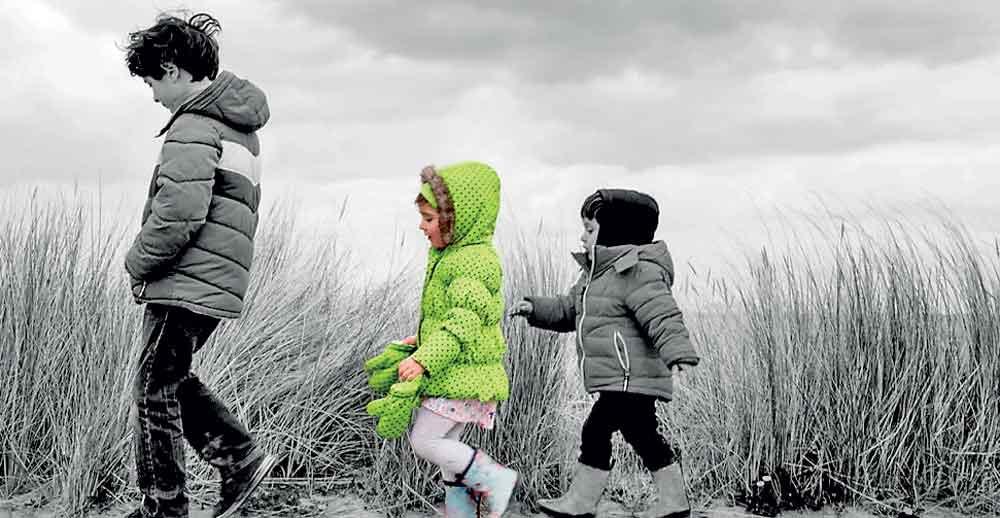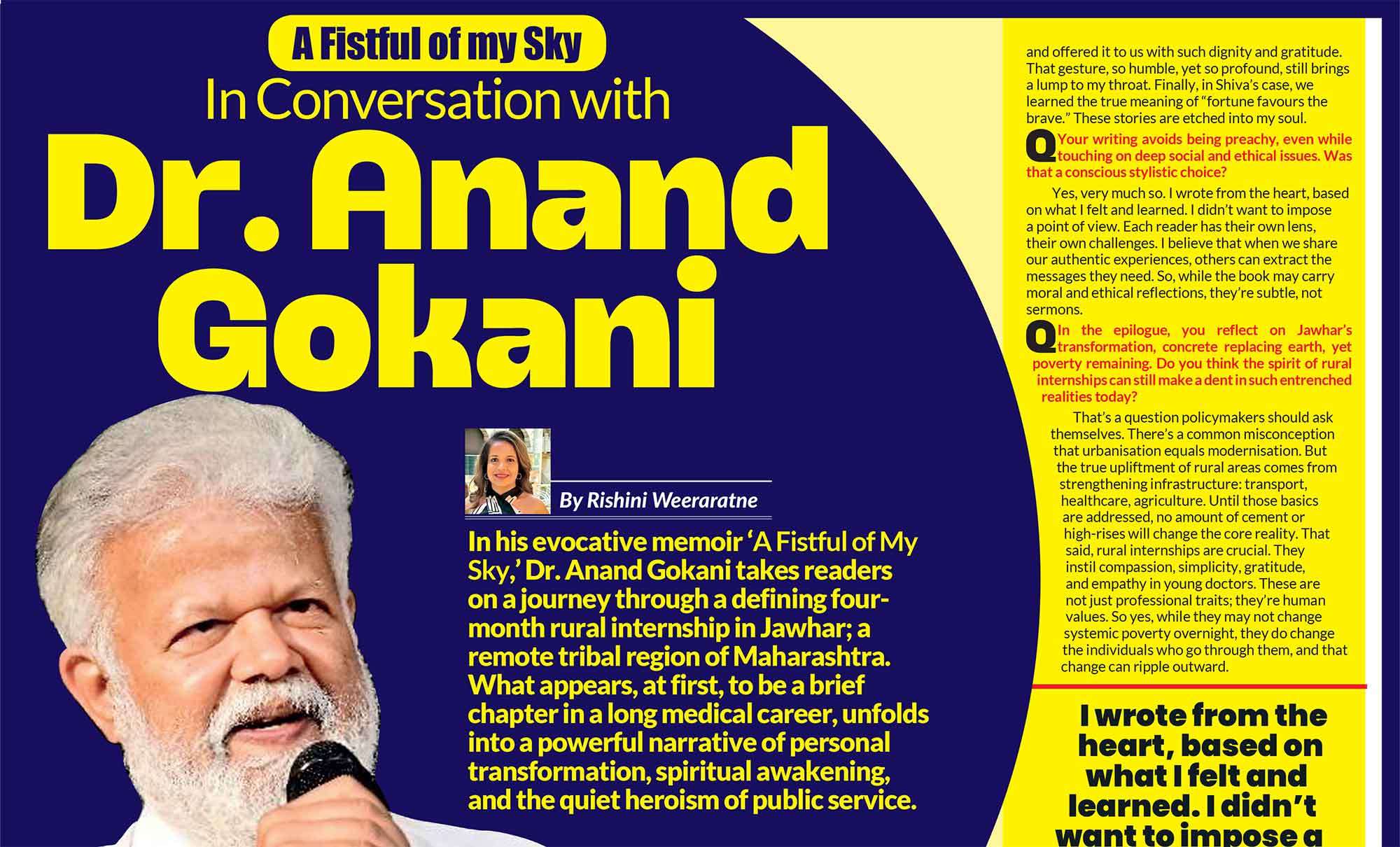
There’s a quiet sorrow that comes from living a life of almost. Not quite the top. Not quite the favorite. Not quite the one people talk about in glowing terms at dinners or award shows or over coffee. Just… good! Solid. Capable. Always there, but rarely the one. Some people live in that space their whole lives; the shadowy edge of excellence. They are the people who work hard,

show up, care deeply and try their best. Their name is remembered, but never as the first on the list. Their talent is acknowledged, but always with caveats. Their presence is appreciated but never quite revered. It’s not failure. Not mediocrity. It’s something hard to explain. They are the kind of people who are consistently, ‘very good,’ but never quite ‘exceptional.’ They get second place. Honourable mentions, the polite nod, praise that is warm but measured. Recognition that is fleeting. They are almost!
In a world obsessed with winning, with brilliance, with bests and firsts and fame, being can almost feel like being invisible. Not many talks about the emotional weight of being second best. Of trying so hard, over, and over, only to fall just short. These people learn early how to suppress disappointment. How to mask longing with grace. How to clap for others when the applause in their own direction never arrives. They become masters of quiet strength. They sit through ceremonies and celebrations knowing their work mattered, but not enough. They watch people who did less get more because they were louder. They learn how to take pride in the effort, even when the result doesn’t follow, and still-they keep going.
So, here’s to them, the second best. The nearly won. The not-quite-there but still beautiful.
This is the Bittersweet Life of Almost!
It’s not all pain. There is beauty in it too, because people who live in that space become tender in places others harden. They become generous with their praise, because they know what it feels like to go without it. They become observant, kind, and aware because they’ve spent a lifetime noticing what’s  overlooked, including themselves. They become the ones who hold up the world quietly. They are the middle children, the understudies, the runners-up, the side characters everyone loves but never writes stories about. They are the calm voice in the room. The person others trust, even if they don’t admire. They are the Amy Marches of the world; refined, resilient, and underestimated. People who are constantly reminded they aren’t someone else’s idea of special, and who keep showing up anyway. Their ambition is often misunderstood. It’s not that they want to steal the spotlight. They just want to be seen, truly, fully, finally seen; not in relation to someone else’s brilliance, but in the light of their own.
overlooked, including themselves. They become the ones who hold up the world quietly. They are the middle children, the understudies, the runners-up, the side characters everyone loves but never writes stories about. They are the calm voice in the room. The person others trust, even if they don’t admire. They are the Amy Marches of the world; refined, resilient, and underestimated. People who are constantly reminded they aren’t someone else’s idea of special, and who keep showing up anyway. Their ambition is often misunderstood. It’s not that they want to steal the spotlight. They just want to be seen, truly, fully, finally seen; not in relation to someone else’s brilliance, but in the light of their own.
There is an ache that forms when talent is dismissed as luck, when dreams are treated like whims, when effort is seen as overcompensation. The world sometimes tells us to, “stay humble,” not realizing they were never allowed to be proud in the first place. Every spark of confidence is mistaken for arrogance. Every request for recognition is met with discomfort. But still-they work. They refine. They improve. Not to prove anyone wrong, but because they believe in themselves, even when no one else does. That belief is often quiet. It doesn’t come from trophies or praise. It comes from choosing to keep going even when it feels like no one is watching. It comes from loving the process, not just the product. From knowing that a thing can be beautiful even if it doesn’t get displayed. There’s something noble in that.
The world is full of them. They just don’t always take up space, but they are the glue. The gravity. The goodness.
People like this learn to find meaning outside of validation. They build their own standards. They choose the goals that matter to them. They cry in private, then show up with composure. They write, paint, dance, and speak not for the spotlight, but because there’s something inside them that refuses to be  silenced. Overtime, the ache of almost, turns into something else. It becomes depth. Perspective. Compassion. A richness of character that can’t be taught by winning. These people become the kinds of friends who notice when others are quiet. The co-workers who stay late because no one else will. The artists who pour themselves into work no one may ever see. The students who rewrite essays three times, not for grades, but because they want them to be better. The daughters who make space at the table, even when they don’t get the first slice of attention.
silenced. Overtime, the ache of almost, turns into something else. It becomes depth. Perspective. Compassion. A richness of character that can’t be taught by winning. These people become the kinds of friends who notice when others are quiet. The co-workers who stay late because no one else will. The artists who pour themselves into work no one may ever see. The students who rewrite essays three times, not for grades, but because they want them to be better. The daughters who make space at the table, even when they don’t get the first slice of attention.
The world is full of them. They just don’t always take up space, but they are the glue. The gravity. The goodness. Slowly, if life is kind, or if they are brave enough, they begin to see that for themselves. Because a life of almost is still a life of trying. A life of care. A life of creation and sometimes being second best teaches things being first never could. How to love without conditions. How to try without guarantees. How to survive without applause. That’s not lesser; it’s just a different kind of strength.
Amy March never became Jo, but she didn’t have to. She became Amy. Brilliant in her own way. Gentle, but shrewd. Ambitious, but self-aware. She wanted more and had the courage to ask for it. She refused to be forgotten and she wasn’t. That’s the truth about people who are almost. They don’t fade. They linger. In memories, in quiet moments, in half-formed dreams. In the things they built while no one was watching. They are not footnotes; they are foundations.
Amy March never became Jo, but she didn’t have to. She became Amy. Brilliant in her own way. Gentle, but shrewd. Ambitious, but self-aware.
So, here’s to them, the second best. The nearly won. The not-quite-there but still beautiful. The ones who keep showing up, keep giving, keep hoping, even without the guarantee of being seen. Because they are worth seeing. Even in second place; especially there. If the world never hands them a trophy, never carves their name into marble; that’s alright. They’ve carved it into moments instead, into effort, into grace, into the soft resilience of showing up again because, in the end, the life of almost isn’t a tragedy. It’s a testament; to quiet strength, to unseen brilliance, to the kind of beauty that doesn’t need to be first to be unforgettable.











